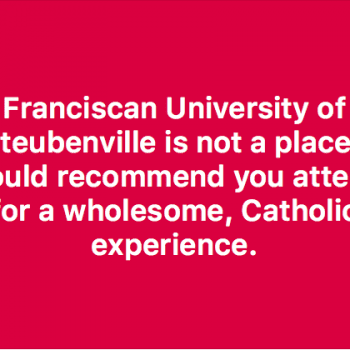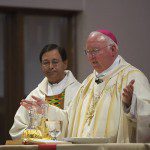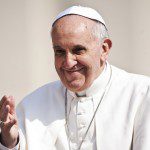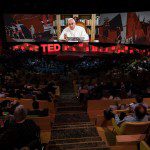Canada’s Prime Minister, Justin Trudeau, recently noted he would ask Pope Francis to apologize for the role played by the Catholic Church in the Canadian Residential Schools program.
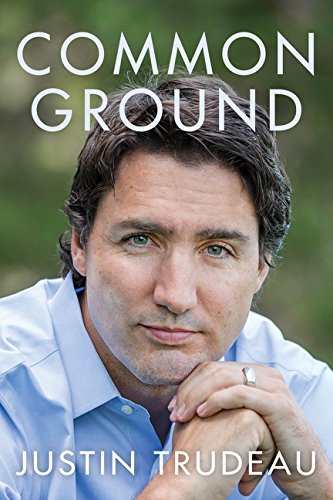
As our brother, Sam Rocha, recently wrote for Proper Nomenclature, Trudeau isn’t wrong to ask for an apology, but shouldn’t go about asking for an apology without considering the many times the Church has apologized for its role – active or passive – in the suffering experienced by many, including the indigenous all throughout America to this day.
With this in mind, does Justin Trudeau have anything to apologize to the Pope or the Canadian bishops for? Does he need to justify any of his actions when he faces the Holy Father or the bishops of Canada?
Let’s consider his liberalism for starters, and we’ll discuss why shortly thereafter.
From his 2014 memoir, Common Ground, Justin Trudeau elevates his liberalism in a special way:
“As someone who was raised Roman Catholic, and who attended a Jesuit school, I understand that it is difficult for people of deep faith to set their beliefs aside in order to serve Canadians who may not share those beliefs. But for me, this is what liberalism is all about. It is the idea that private belief, while it ought to be valued and respected, is fundamentally different from public duty. My idea of freedom is that we should protect the rights of people to believe what their conscience dictates, but fight equally hard to protect people from having the beliefs of others imposed upon them.”¹
This is quite consistent with what he seems to have said to youth years earlier, in Toronto’s preparation for World Youth Day, namely, to reject “old men with old ideas”.
It would make sense, then, for Trudeau to ask the Pope for an apology, if he’s been closing his ears to what the Church has said, done, and taught over the years.
Trudeau may have forgotten that the Church has apologized several times for the injustices committed against America’s indigenous people.² Trudeau may have forgotten that Catholics were among the first to apologize for the residential school programs.³ Or maybe Trudeau doesn’t care that the Church has apologized. Or maybe Trudeau doesn’t know that the Church has apologized.
Or – like a good liberal – maybe Trudeau wants to foster and direct resentment towards the Church, no matter how many times it has apologized, continues to apologize, and seeks to make things right with those hurt by its actions and omissions.
Things Trudeau might say
So, what does Trudeau have to apologize for?
This has to do with what he has said, the positions he has taken, and not making clear, perhaps, that apologies have been made in the past.
Trudeau might say, “Yes, I’m sorry that I wasn’t clear when I said I would ask the Pope to apologize for the residential schools program. Another apology for the treatment of America’s indigenous people would be great, and appreciated; but I forgot to mention that it wouldn’t be the first time bishops and leaders in the Church have apologized.”
Trudeau might say, “I’m sorry: I know I said we should reject the ‘old men with old ideas’ who have the mission of guiding and teaching, but I still want an apology from them.”
Trudeau might say, “Forgive me, I’m a liberal, and I, like many liberals, put aside what the Church teaches when it doesn’t conform with what I believe, so, Pope Francis, I have a something I’d like to tell you in private – since religion is a private affair.”
Trudeau might say, “Forgive me, I didn’t know the Church taught this or that on liberalism.”
Trudeau might say, “Forgive me, I shouldn’t have called out the Pope and the Catholic Church without later clarifying that the Church has apologized, that the Pope isn’t aware of every single detail in Church life across the world, and that I failed to call out other religious leaders who haven’t (and those who have) apologized.”
Trudeau might say, “Forgive me, I tried to demonstrate the State’s power over the Church when uncritically seeking an apology from the Pope.”
Lastly, Trudeau might say, “Forgive me, for I distracted the audience from the gravity of the government’s responsibility and role in the residential school programs by redirecting the focus on the Catholic Church.”
Liberalism
Trudeau calls himself a liberal. Did we ever consider what the Church might teach on liberalism?
Consider Trudeau’s right of conscience, as he explained in the above quote from his memoir, as well as his rebuke of Church authority and teaching in the whole of social life. Now consider this portion of Gregory XVI’s encyclical, Mirari Vos, which addresses liberalism:
The divine authority of the Church is opposed and her rights shorn off. She is subjected to human reason and with the greatest injustice exposed to the hatred of the people and reduced to vile servitude. The obedience due bishops is denied and their rights are trampled underfoot. Furthermore, academies and schools resound with new, monstrous opinions, which openly attack the Catholic faith; this horrible and nefarious war is openly and even publicly waged. Thus, by institutions and by the example of teachers, the minds of the youth are corrupted and a tremendous blow is dealt to religion and the perversion of morals is spread. So the restraints of religion are thrown off, by which alone kingdoms stand …
This shameful font of indifferentism gives rise to that absurd and erroneous proposition which claims that liberty of conscience must be maintained for everyone. It spreads ruin in sacred and civil affairs, though some repeat over and over again with the greatest impudence that some advantage accrues to religion from it… When all restraints are removed by which men are kept on the narrow path of truth, their nature, which is already inclined to evil, propels them to ruin… Thence comes transformation of minds, corruption of youths, contempt of sacred things and holy laws — in other words, a pestilence more deadly to the state than any other. Experience shows, even from earliest times, that cities renowned for wealth, dominion, and glory perished as a result of this single evil, namely immoderate freedom of opinion, license of free speech, and desire for novelty.⁴
I do find it interesting that Trudeau may find inspiration in his faith for working against the destruction of the planet – and justifiably, perhaps, imposing this project on the whole of Canada – as well as in reconciling with the indigenous of Canada – rightfully, perhaps, using funds in a way someone who was a liberal, with a false suum cuique, wouldn’t do. Trudeau’s poverty relief effort seems very strong as well, though very costly. Most liberals – consistent liberals, that is – may find themselves arguing against such efforts. Surely, this could be difficult to understand as liberalism, for Trudeau, is invoked where it benefits his political beliefs.
(This reminds me of two paragraphs in Leo XII’s Libertas⁵. This is lengthy, so I’ll add it to the footnotes below. Leo discusses liberalism in relation to individuals and liberalism in relation to states – and various inconsistencies therein.)
Why not be liberal in all ways, including in the economic realm?
Doing so would be contrary to the will of the “Liberals” of Canada – because when it comes to the economy and welfare, they’re not really liberals, or endorsers of liberalism.
What does Pius XI have to say about liberalism – especially as it extends from the moral realm of private action, if we can call it that for now, to the economic and social realm? He hates it – and it gives rise to other ills as well:
If we would explain the blind acceptance of Communism by so many thousands of workmen, we must remember that the way had been already prepared for it by the religious and moral destitution in which wage-earners had been left by liberal economics.⁶
The last footnote contains additional examples of what liberalism is and how it demolishes spiritual and material life – human and organic – when applied consistently.
Maybe Trudeau will come up with a new name for his ideology – if he will refrain from embracing liberalism consistently.
Will he apologize to Canada for being liberal sometimes but not others?
Will he apologize to the Church for not being clear about previous apologies, when asking for a new one?
Will he apologize for rejecting the Church’s authority when asking for an apology from the Church’s authority?
Liberalism is an interesting phenomena. In the United States we have two kinds of liberals, both inconsistent like Mr. Trudeau, identifying themselves with the “left” or with the “right”. Well, actually, many of those called “millennials” are also a weird hybrid of liberalism and non-liberalism, certainly inconsistent.
I do wish Mr. Trudeau the very best in his role as Prime Minister, only recently assumed on 4 November, 2015 – the feast of St. Charles of Borromeo -, and hope he continues to fight for the poor, the indigenous, and the planet – in a way that is consistent with the dignity of life.
Will Pope Francis apologize according to Trudeau’s terms? Perhaps – but he may also let the apologies offered in the past stand. The Church will continue to repent, refine its ways, and preach the Good News of Jesus Christ, but I’m not sure if it will be bullied by liberals in government to do so according to their terms – and it doesn’t matter if the liberals are called Liberals, Conservatives, Libertarians, Democrats, or Republicans.
Until next time,
If you have found the content on Keith Michael Estrada’s “Proper Nomenclature” to be useful, kindly consider supporting the cause with a donation.
Use the button below to donate through PayPal:![]()
Thank you!
———Notes———-
Notes are on the next page to reduce the length of this page for those who are not interested. Please click on Page 2 to see our notes.







